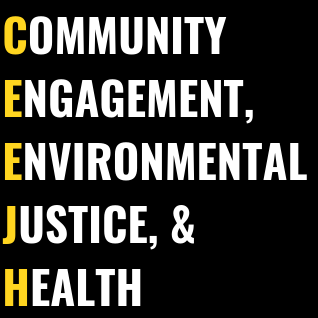PesticidesSmart is an initiative of the Maryland Pesticide Network -- a grassroots coalition dedicated to protecting public and the environment from toxic pesticides and promoting healthy alternatives. Founded in 1994, MPN's diverse membership includes health care provider, consumer, environmental, parent, labor, agricultural and religious organizations. The impact of pesticide use is a complex issue about which we will never have perfect knowledge. Therefore, the coalition's work is based on the precautionary principle, which states: "When an activity raises threats of harm to human health or their environment, precautionary measures should be taken even if some cause and effect relationships are not fully established scientifically."
Read More“A recent interview with environmental health scientist Sacoby Wilson, published in the Yale Environment 360 magazine, affirms the ways that environmental issues connect to a wide range of public health and larger societal issues.”
Read More“Salas and Sacoby Wilson, a professor of environmental health and epidemiology at the University of Maryland, who also wasn't part of the study, pointed to studies in Baltimore and other cities showing that because of fewer trees, more asphalt and other issues, temperatures can be more than 10 degrees hotter in poorer neighborhoods.”
Read More“As Dr. Wilson states, it is important that science is not just for science’s sake, but that science is for action, science is to empower people and science is for social change. So, science is not the end, it is a means to an end and can be used for transformation, reformation, and revolution.”
Read MoreSeveral organizations are signing on to a letter being sent to Maryland Governor Larry Hogan. They’re urging the governor to do more to do more to prevent racial environmental inequality. “You should be looking at the environmental impacts. Baseline environmental hazards, baseline health impacts, who are the vulnerable populations, and what are the alternatives?” said Dr. Sacoby Wilson with the Maryland Institute for Applied Environmental Health.
Read MoreSacoby Wilson, an environmental health scientist at the University of Maryland, believes the coronavirus has cast a spotlight on largely unnoticed segments of society, from low-income people in polluted neighborhoods, to residents of nursing homes and prisons, to workers in the nation’s meatpacking plants “One thing that COVID-19 has done, it has made a lot of populations we made invisible, visible,” Wilson says in an interview with Yale Environment 360.
Read More“Scientist Sacoby Wilson has long focused on health issues related to environmental injustice. In an e360 interview, he discusses how social and environmental inequality have contributed to the outsized impact of Covid-19 on low-income neighborhoods and communities of color.”
Read MoreThis webinar originally aired on Sept 16th, 2020 and was hosted by the Chesapeake Bay Program’s Citizens Advisory Committee (CAC).
Read MoreOn September 10, when the air quality index in Monterey County, California hit 153—into the “unhealthy” zone, and up from an AQI of 79 the day before—the United Farm Workers of America shared an image of workers in King City, walking through a field as the sky glowed an eerie orange. Multiple wildfires were burning across the state, and farm workers were still out in the fields, working amid clouds of smoke.









